- Austausch & Vernetzung
- Wissen & Lernen
- Advocacy
- Unsere Themen
Nichtübertragbare, chronische Krankheiten werden in der internationalen Gesundheitszusammenarbeit gerne verdrängt. Mit einem MMS Bulletin und dem anstehenden Symposium zeigt das Netzwerk Medicus Mundi Schweiz die Relevanz der Thematik auf.
Seit 2008 arbeite ich nun für das Netzwerk Medicus Mundi Schweiz – und von Anfang an und immer wieder taucht das Thema der nicht-übertragbaren, chronischen Krankheiten (NCDs) auf. Immer wieder haben wir es aufgegriffen – und dann auch wieder fallen gelassen. Mit der neuen, seit dem Januar laufenden Strategie, soll die Thematik nun mehr Gewicht und Kohärenz innerhalb unserer Arbeit erhalten. Wir wollen die NCDs aus ihrem Stiefmütterchendasein befreien, in welchem sie innerhalb der internationalen Gesundheitszusammenarbeit stecken. Es scheint, als mögen unsere Wohlstandskrankheiten Herz-Kreislauf-Erkrankungen, Krebs oder Diabetes einfach nicht so recht zu Weltregionen mit tiefen Einkommen passen. Tatsache aber bleibt, dass 80%, der an diesen Krankheiten frühzeitig sterbenden Menschen in Ländern mit tiefem und mittlerem Einkommen leben.
Eine wichtige Rolle dabei wird unser MMS Symposium am 2. November in Basel spielen. Dabei interessieren uns zwei Fragen besonders: Was bedeutet die globale NCDs-Epidemie für die Organisation der Gesundheitsversorgung in Ländern mit schwachen Gesundheitssystemen? Was bedeutet sie für die Zukunft der internationalen Gesundheitszusammenarbeit in einem nach schnellen Ergebnissen rufenden politischen und gesellschaftlichen Umfeld? Und schliesslich, aber nicht zuletzt wollen wir wissen, was wir tun müssen, um die NCDs verursachenden Faktoren anzugehen? Denn diese liegen in der Art und Weise, wie etwa die Lebensmittel- und Nahrungsmittelindustrie sowie die Tabakindustrie weltweit die Lebenswelten zu bestimmen versucht. Die NCDs-Epidemie sagt uns sowohl auf der Ebene der Gesundheitsversorgung wie auch auf der Ebene des globalen Handels eines: Business as usual geht nicht.
Einer ganz anderen Dimension der NCDs haben wir uns in der jüngsten Ausgabe des MMS Bulletins zugewandt – derjenigen, der psychischen Gesundheit in der internationalen Zusammenarbeit. Es liegt eine Ausgabe unserer Fachzeitschrift vor, welche die Debatten auf globaler Ebene thematisiert und auch unterschiedlichen Aspekten der konkreten Arbeit verschiedener Organisationen und Institutionen nachgeht.
Eine sehr anregende und lehrreiche Lektüre für die kommenden Sommerwochen – und ich freue mich schon jetzt darauf, Sie dann, wenn es wieder kühler wird, in Basel an unserem Symposium zu begrüssen.
Martin Leschhorn Strebel
Geschäftsführer Netzwerk Medicus Mundi Schweiz
mleschhorn@medicusmundi.ch
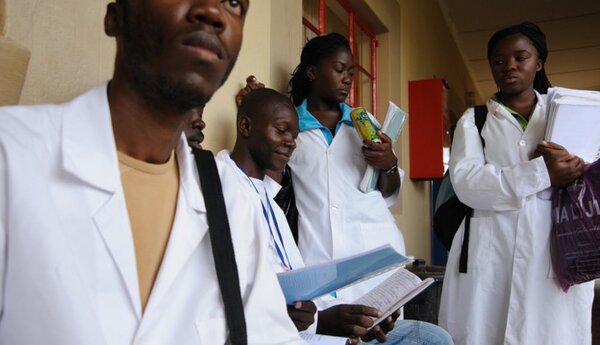
MMS/SBK Vor einiger Zeit hat MMS zusammen mit einer breiten Koalition ein Manifest zum Gesundheitspersonalmangel publiziert – ein Manifest, das breit in der Öffentlichkeit diskutiert wurde. Wo stehen wir heute? Kommt die Schweiz ihrer globalen Verantwortung bei der Rekrutierung von Gesundheitspersonal nach – und was sind die wichtigsten Trends? Dazu planen der Schweizerische Berufsverband der Pflegefachfrauen und –männer zusammen mit uns einen runden Tisch. Mit einem Input von Howard Catton, Geschäftsführer der Abteilung Nursing und Gesundheitspolitik beim International Council of Nurses. (Photo: Nurses being trained at a college in Lubango, Angola/ Guy Oliver/IRIN)
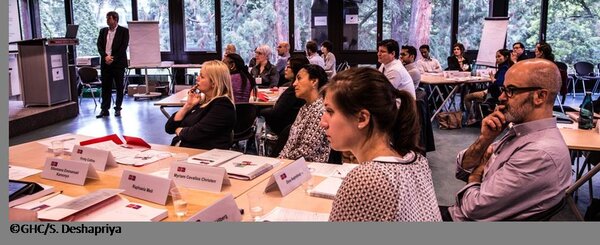
Global Health Center Many different forms of migration exist and human mobility shapes global health, impacting on domestic and foreign poli¬cies of sending, transition and receiving countries. The health of migrants is influenced by these different policies and legal frameworks but also by the practices surrounding migration. Yet, the act of migration alone does not cause any disease. Rather, the socioeconomic, political, cultural and environmen¬tal conditions connected to the act of migration can impact on health and the vulnerability to disease. National health systems are often put under pressure to respond to large-scale movements and diplomacy comes into play to find cross-border, collective solutions. Health can serve as an entry point for these diplomatic actions and new governance mechanisms need to be negotiated to respond appropriately to migration crises. This course will address the key challenges of contemporary large-scale population movements and its interplay with health.
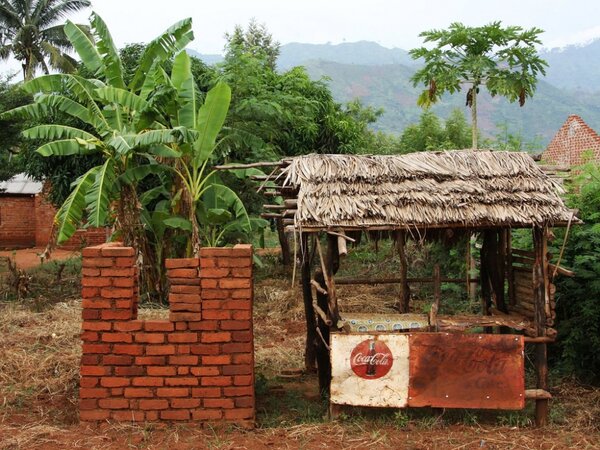
MMS The MMS Symposium will address the challenges of tackling noncommunicable diseases (NCDs) by looking at the determinants of NCDs, the organisation of health care and the role of civil societies. A “business-as-usual” approach won’t suffice. NCDs kill 40 million people each year. NCDs are currently responsible for almost 70% of global deaths. (Photo: Tanzania, Charlotte Nordahl/Flickr - Irin News)
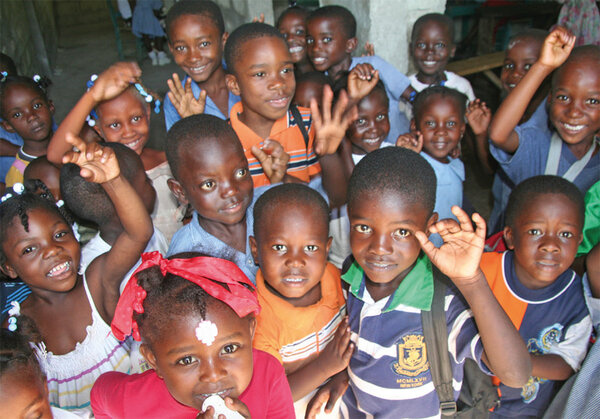
SCHWEIZER PARTNERSCHAFT HAS HAÏTI Die SCHWEIZER PARTNERSCHAFT HAS HAÏTI wird dieses Jahr 20 Jahre alt und möchte mit Ihnen zusammen die grossen Erfolge feiern und die Zeit Revue passieren lassen. Melden Sie sich jetzt an für einen wunderschönen Abend mit musikalischen und humorvollen Künstlern, einem feinen Essen sowie Geschichten und Anekdoten der SCHWEIZER PARTNERSCHAFT HAS HAÏTI.
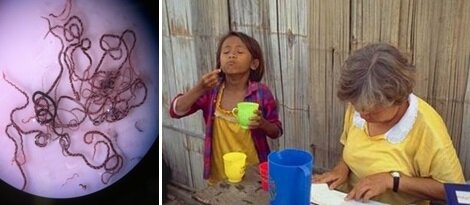
Swiss TPH The Swiss TPH Winter Symposium 2017 invites medical parisitologists, infection biologists, epidemiologists and global health specialists and students to review and discuss progress in research, control, elimination and eradication of helminth infections. - Health impact versus health benefits of helminth infections; - Towards better treatment options for helminth infections; - Latest diagnostic developments; - From morbitity control to elimination and eradication.

Global Forum on Human Resources for Health The global community is presented with an unprecedented challenge and an opportunity: to avert a potential 18 million health worker shortfall and shape increasing demand for additional health and social workforce jobs. In doing so, we will make progress towards universal health coverage and global health security while also contributing to gains across the 2030 Agenda for Sustainable Development (e.g. quality education, gender equality, reduced inequalities, decent jobs and inclusive economic growth).
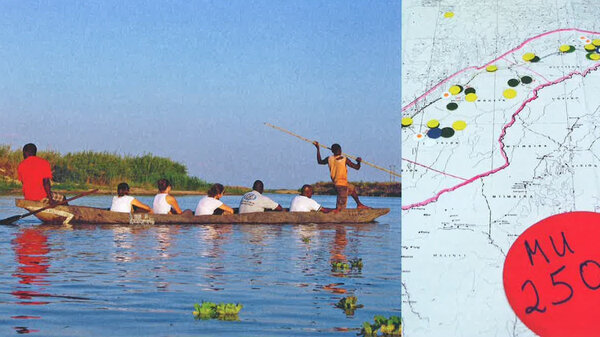
Swiss TPH The course introduces the basic principles of strategic programme and project design and management, taking into consideration local, district, national and international/global evidence and realities and health system strengthening needs. It focuses on priority setting and practical aspects of the planning and implementation process, through the use of a simulation exercise and computer based support. Designed as a refresher course for professionals working in the field of programme and project planning, design and evaluation, the course is also open to participants with a DAS Health Care and Management in Tropical Countries (or equivalent) and is an optional module within the joint Master of Advanced Study in International Health.
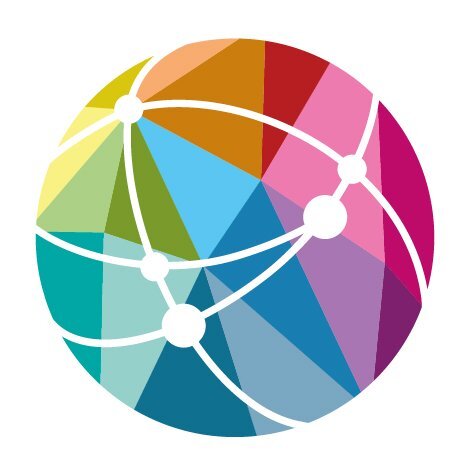
International Conference on research for Development The conference offers a platform for researchers, policymakers, civil society, and others to come together and engage in creative dialogue and concerted action. ICRD 2017 will focus on research for sustainable development, in particular on improving our understanding of how evidence can support policies for transformation in countries of Africa, Asia, and Latin America. This includes considering how the scientific community responds to knowledge needs, how decision-makers involve researchers, how evidence-based policymaking can be realized, and how alternative, non-linear science–policy–practice interactions might look. We encourage creative, interdisciplinary, and interactive contributions offering visionary, transformative pathways to sustainable development worldwide. One of the topics will be: "How can we ensure that health, food systems, and sustainable agricultural systems mutually reinforce one another to better support people’s livelihoods and well-being?"

European Congress on Tropical Medicine and International Health ECTMIH ECTMIH brings together scientists and experts from Europe and from all over the world, including many delegates from low and middle income countries. This biennial event is patronised by FESTMIH, the Federation of European Societies of Tropical Medicine and International Health. In 2017, the Antwerp Institute of Tropical Institute (ITM) and the Belgian Platform for International Health (Be-Cause Health) will join hands with FESTMIH for the festive 10th edition. Building on the successes of previous meetings, it will consolidate ECTMIH's standing as Europe's leading conference and networking event in its field.
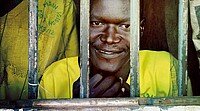
Swiss TPH Health in detention is a one-week course offered by Swiss Tropical and Public Health Institute (Swiss TPH), an associated institute of the University of Basel, in collaboration with the International Committee of the Red Cross (ICRC). This course is open to participants working in the field of health in detention, nationally or internationally, and uses a multi-disciplinary approach to bring together academia, clinical, public health and legal experts.
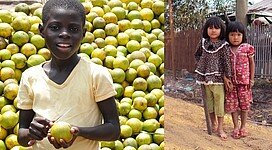
Swiss TPH Der Allgemeine Tropenkurs (ATK) ist ein 8-wöchiger, ganztägiger Kurs, welcher auf das Leben und Arbeiten in Ländern mit extremer Mittelknappheit vorbereitet. Der ATK ermöglicht eine intensive Auseinandersetzung mit den globalen ökonomischen, ökologischen, kulturgeographischen und soziokulturellen Zusammenhängen und gesundheitlichen Aspekten des Lebens in den Tropen und Subtropen. Der ATK wird jährlich durchgeführt und ist in zwei Module gegliedert: Grundmodul (4 Wochen) Biomedizinisches Modul (4 Wochen).
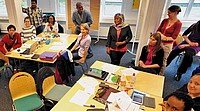
Swiss TPH This 3 months full time course aims at introducing participants to the fundamentals of international health with a range of skills and knowledge needed to work as a member of a district management team. The participatory course is designed for people who already have a first qualification in a health-related profession, and at least two years professional experience.

Swiss TPH The course is designed for physicians specialized in infectious diseases who want to expand their clinical knowledge by the spectrum of clinical tropical medicine in South East Asia. The course is offered by the Swiss Tropical and Public Health Institute (Swiss TPH), an associated institute of the University of Basel, in collaboration with the Mahosot Hospital (Vientiane, Laos); the Wellcome Trust – Mahosot Hospital – Oxford Tropical Medicine Research Collaboration; the University of Pavia, Division of Infectious and Tropical Diseases; IRCCS S. Matteo Hospital Foundation (Pavia, Italy), and the Faculty of Tropical Medicine, Mahidol University (Bangkok, Thailand).
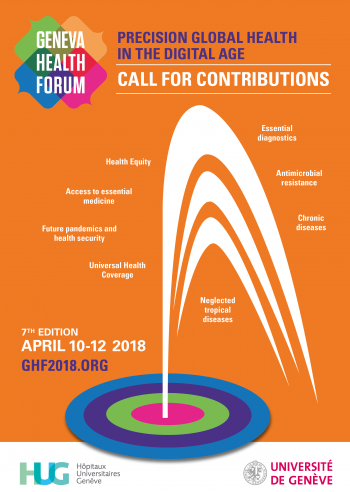
Geneva Health Forum 10-12 April 2018
The Geneva Health Forum is the forum of innovative practices in global health with the aim to showcase innovative, accessible and sustainable practices in order to facilitate access and health equity; and to be a not-to-be- missed international event where the major health issues, fed by field experiences, are challenged. The GHF promotes dynamic networking and partnership among various parties active in global health; an integrated and multisectoral approach being essential to meet the complexity of today’s and tomorrow’s global health.
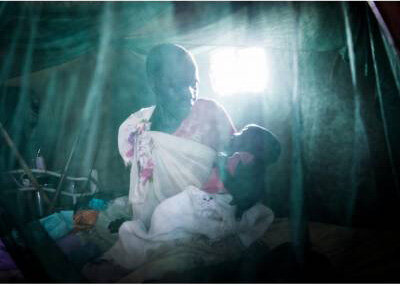
Findings of a Swiss Red Cross learning process with case studies form South Sudan and Haiti
This study is the result of a two-year SRC learning process run by the SRC on the challenges and effective approaches to health work in fragile contexts. The focus is on the interaction between health programmes and their context: How does a fragile context influence healthcare work? Can a health programme help reduce that fragility? The conclusions are based on the results of two case studies in South Sudan and Haiti, together with discussions at the Health in Fragile Contexts conference organized by the SRC, SDC and Medicus Mundi Schweiz health network in August 2016.
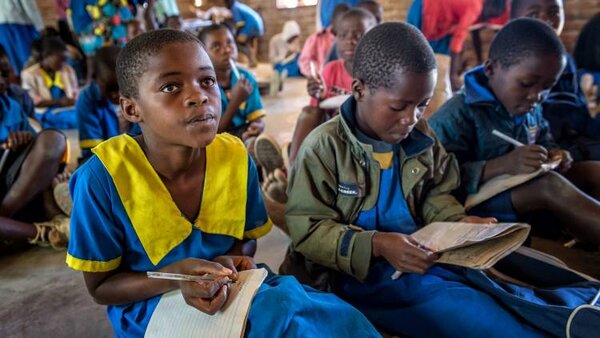
SRF Sendung «mitenand», 05.06.2017
In Malawi, einem der zehn ärmsten Länder der Welt, sind viele Kinder unterernährt. Eine Dürre als Folge des Klimawandels hat die Lage verschlimmert. Dank Schulküchen des Schweizerischen Roten Kreuzes und der Glückskette erhalten gegen 10 000 Kinder ein richtiges Essen pro Tag. (Foto: SRK)
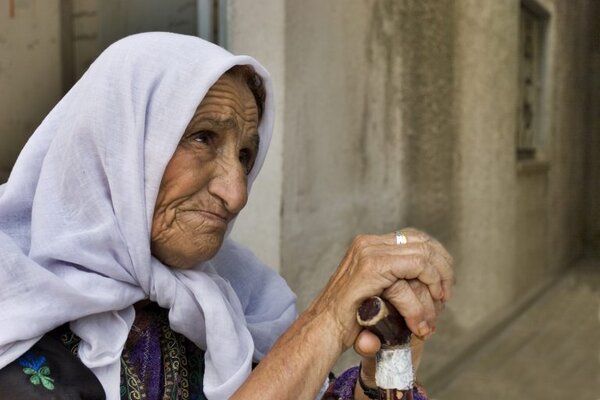
Une vieille dame associative face à la coopération du XXIème siècle
Rares sont les ONGs qui atteignent les 80 ans. Parmi elles, il y a la Centrale Sanitaire Suisse Romande (CSSR) qui fête son anniversaire le 11 juin, confrontée à sa propre histoire et aux nouvelles exigences de la coopération au développement.
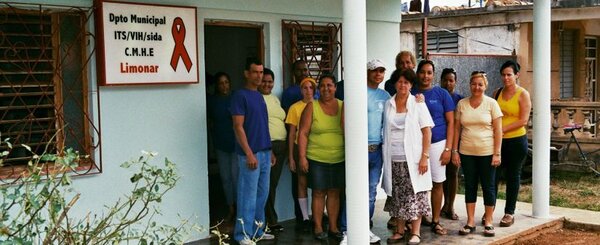
mediCuba feiert 25 Jahre Engagement, 25 Jahre Solidarität
25 Jahre sind vergangen, seit eine Handvoll Schweizer Ärzte beschloss das kubanische Gesundheitssystem zu unterstützen, um die beispiellosen Errungenschaften Kubas zu erhalten. Trotz der Herausforderungen, denen sich Kuba seit dem Sieg der Revolution gegenüber sah, ist es dem Regime gelungen, ein umfassendes Gesundheitssystem von hoher Qualität und frei zugänglich für alle Kubaner zu errichten und aufrecht zu erhalten.

is a network of institutions that engages Swiss hospitals and other institutions in effective and sustainable North-South partnerships. ESTHER partnerships strengthen the capacity of the health workforce and institutions to provide quality health services for people in low and middle-income countries, with a focus on universal health care coverage and strengthening health services. ESTHER Switzerland promotes institutional health partnerships through knowledge generation, sharing best practice, collaboration, and advocacy. ESTHER Switzerland is an active member of the European ESTHER Alliance (EEA) and supports the EEA Secretariat.
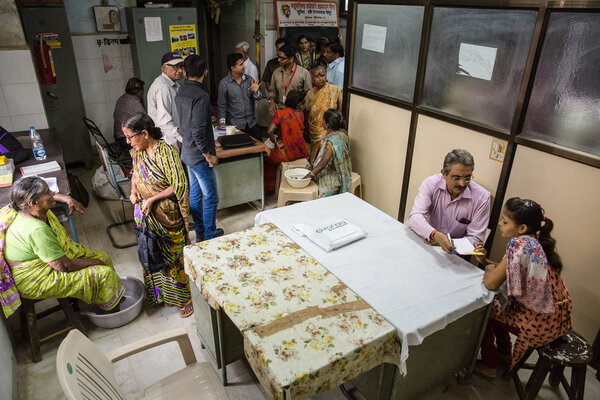
Indien noch immer das Land mit den meisten Leprafällen weltweit
Seit 57 Jahren engagiert sich FAIRMED in Indien in der Eliminierung von Lepra. Mit der Gründung vom Trust «FAIRMED India» am 19. Mai in Chennai verfolgt das Projekt nun das Ziel, sich zunehmend mit indischen Spendengeldern zu finanzieren.
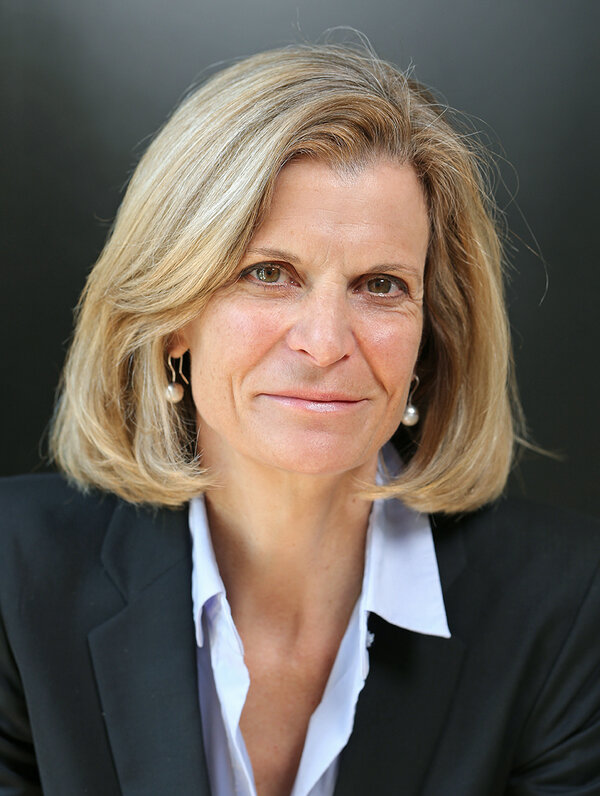
Anna Wegelin folgt auf Christian Heuss
Anfang Juni hat Anna Wegelin ihre Tätigkeit als Head of Communications am Swiss TPH begonnen. Ihr Vorgänger Christian Heuss wechselte nach vier Jahren in die Geschäftsleitung von SolidarMed.

Der Bundesrat möchte die internationale Zusammenarbeit weiter reduzieren
Der Bundesrat hat heute unter dem Titel «ausgeglichener Voranschlag» seinen Entwurf für das Bundesbudget 2018 präsentiert. Fakt ist: Es handelt sich um ein völlig einseitiges Sparpaket, das vor allem auf Kosten der Entwicklungszusammenarbeit geht. (Foto: © Daniel Hitzig/Alliance Sud)
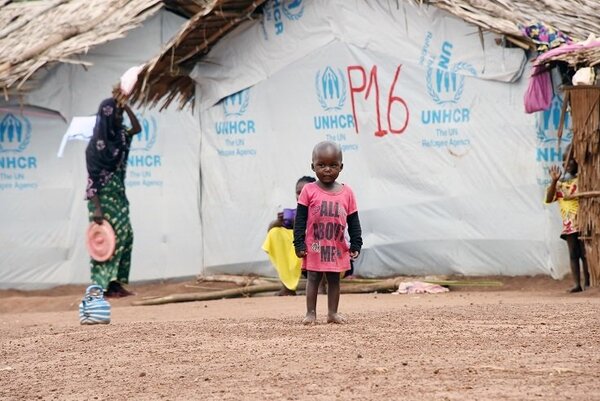
Neues Projekt in Douala und Yaoundé
Seit dem Beginn der andauernden kriegerischen Auseinandersetzungen in der Zentralafrikanischen Republik sind schon über eine Viertelmillion Menschen ins Nachbarland Kamerun geflüchtet. Die massive Einwanderung überfordert das Gesundheitssystem in kamerunischen Grossstädten. Deshalb baut FAIRMED in Zusammenarbeit mit dem Hohen Flüchtlingskommissar der Vereinten Nationen (UNHCR) ab dem 1. Juli ihr Angebot an Gesundheitsdienstleistungen in den Städten Douala und Yaoundé aus.
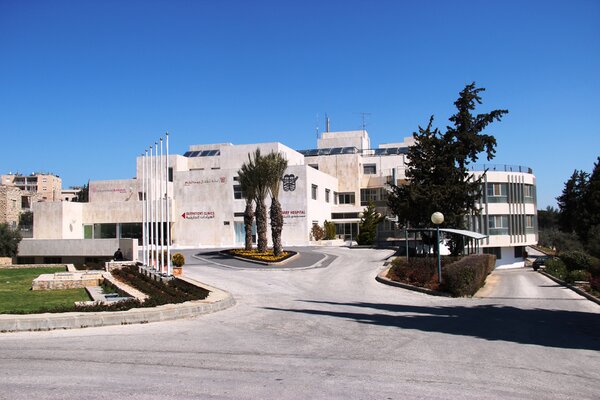
Fokus auf die Ärmsten
Das Gesundheitswesen in Palästina hat sich in den letzten Jahren stark verändert und die medizinische Grundversorgung wurde deutlich verbessert. Das Caritas Baby Hospital, das von der Kinderhilfe Bethlehem betrieben wird, will weiterhin eine Vor-reiterrolle übernehmen und für die Armen da sein.

MMS The MMS Symposium will address the challenges of tackling noncommunicable diseases (NCDs) by looking at the determinants of NCDs, the organisation of health care and the role of civil societies. A “business-as-usual” approach won’t suffice. NCDs kill 40 million people each year. NCDs are currently responsible for almost 70% of global deaths. (Photo: Tanzania, Charlotte Nordahl/Flickr - Irin News)
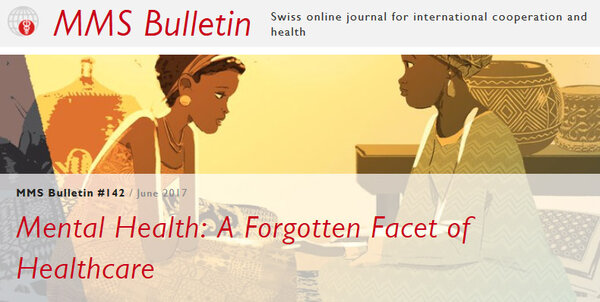
MMS Bulletin #142, Juni 2017
Weltweit leiden fast 450 Millionen Menschen an psychischen Störungen; mehr als 75% davon leben in Entwicklungsländern. Laut Weltgesundheitsorganisation erhalten 85% der Personen mit schweren psychischen Störungen in Entwicklungsländern überhaupt keine Behandlung. Zum ersten Mal anerkennen Entscheidungsträger weltweit die Förderung der psychischen Gesundheit und des Wohlergehens (SDG Ziel 3.4) sowie die Prävention und Behandlung von Substanzmissbrauch (SDG ZIel 3.5) im Rahmen der Nachhaltigen Entwicklungsziele (SDG) an. Sofern die Regierungen die psychische Gesundheit nicht angehen, werden sie die Ziele von SDG 3 nicht erreichen. Das Netzwerk Medicus Mundi Schweiz behandelt die Frage der psychischen Gesundheit als Teil seines Jahresthemas der "nichtübertragbaren Krankheiten". (Illustration: WHO's World Health Day Campaign 2017 "Let's Talk")